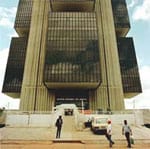BRAZIL

|
|
is putting the brakes on interest rate cuts |
Having vowed to make economic growth the focus of his second term, Brazilian president Luiz Incio Lula da Silva unveiled a long-awaited plan to boost the nations economy. The federal government will invest $234 billion over the next four years to improve infrastructure, increase access to credit, reduce bureaucracy and encourage private investment. The president promised to accelerate growth to 5% in 2007, up from an average of 2.7% during his first administration.
Increased investment and lower interest rates should support the presidents growth strategy. The Institute of International Finance predicts net direct investment in Brazil will rise to $13 billion this year, compared to a $6 billion decline in 2006. Portfolio equity investment will also rise to a record $12 billion, according to the organization, which expects almost 50% of the $52 billion in net equity investment predicted for Latin America to go to Brazil.
Brazils central bank cut the benchmark Selic rate by a quarter-point to 13% in January, slowing the pace of its rate cuts. The IPCA inflation index (broad consumer price index) ended 2006 at 3.14%, its lowest level in nearly a decade and below the 4.5% official target. As a result, further rate cuts are expected.
The Petrobras state-owned oil company was granted an investment-grade rating by Standard & Poors. With a BBB- long-term rating, it is two notches above the sovereign. Meanwhile, investor appetite for sovereign paper remains high. A $500 million reopening of the governments 7.125% bonds due 2037, led by Bear Stearns and Merrill Lynch, saw demand for $950 million. The bonds were priced to yield 6.635%.
Antonio Guerrero



